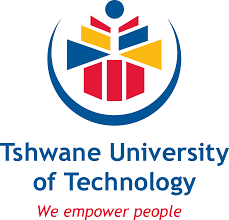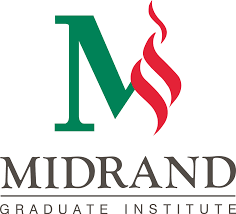How Much is Ikhala TVET College School Fees 2026 Academic Session – A Detailed Guide
If you’re planning to attend Ikhala TVET College in 2026, it’s essential to understand the costs involved. Knowing the school fees for tuition, accommodation, and other related expenses will help you plan your finances effectively and ensure that you can make the most of your educational experience.
Ikhala TVET College, located in the Eastern Cape, South Africa, is renowned for offering a wide range of vocational and technical education programs that equip students with practical skills for careers in sectors such as engineering, business, information technology (IT), and hospitality. Whether you’re pursuing a National Certificate Vocational (NCV) qualification or a NATED program, understanding the fees and available financial support options is crucial before you begin your studies.
This article provides a detailed breakdown of the 2026 school fees for Ikhala TVET College, including tuition costs, accommodation, study materials, and available financial aid options.
About Ikhala TVET College
Ikhala TVET College is a public institution located in the Eastern Cape of South Africa. The college is committed to offering high-quality vocational and technical education that empowers students with the skills needed to succeed in today’s job market. Ikhala offers a wide range of courses in fields such as engineering, business management, information technology (IT), hospitality, and health sciences.
The college is well-established, with campuses in key locations like Queenstown, Cacadu, and Sterkspruit. By focusing on hands-on training and industry-relevant qualifications, Ikhala TVET College helps students develop the practical skills employers are looking for.
Estimated School Fees for Ikhala TVET College in 2026
The school fees at Ikhala TVET College will vary depending on the program you choose. Below is an estimated breakdown of tuition fees for different courses offered at the college.
1. Tuition Fees
The tuition fees at Ikhala TVET College differ based on the course or qualification you pursue. Here’s a general overview of the expected tuition fees for various programs in 2026:
- Business and Management Programs: For courses such as Business Management, Marketing, Human Resource Management, and Financial Management, tuition fees generally range from R6,000 to R12,000 per year.
- Engineering Programs: Engineering programs, such as Mechanical Engineering, Electrical Engineering, Civil Engineering, and Engineering Studies, are typically more expensive due to the practical nature of the training. The fees for these programs usually range from R12,000 to R18,000 annually.
- Information Technology (IT) Programs: Courses in IT, including Network Engineering, Software Development, and Computer Programming, generally cost between R7,000 and R12,000 per year.
- Hospitality and Tourism Programs: For courses such as Hospitality Management, Tourism, and Culinary Arts, tuition fees typically range between R6,000 and R10,000 per year.
- Health and Social Sciences: Programs like Community Development, Social Work, and Nursing generally cost between R8,000 and R15,000 annually.
Keep in mind that these figures are estimates and are subject to change. It is advisable to visit the official Ikhala TVET College website or contact the college directly for the most up-to-date fee information.
2. Registration Fees
When you apply to Ikhala TVET College, you will be required to pay a registration fee. This fee is typically non-refundable and secures your spot at the college. For 2026, the registration fee is estimated to range from R500 to R1,000. Be sure to check the college’s website for the exact amount.
3. Accommodation Fees
If you plan to live on-campus, you will need to consider the cost of accommodation. The fees for on-campus accommodation depend on the campus location and the type of accommodation. Below is a general guide to accommodation costs:
- On-campus accommodation: For students living on-campus, accommodation fees typically range from R2,500 to R4,500 per month, depending on the campus and room type. This usually includes utilities such as water and electricity.
- Off-campus accommodation: If you choose to live off-campus, rental prices in the surrounding areas can range from R2,000 to R3,500 per month, depending on the location and type of accommodation.
It’s important to confirm accommodation costs with the college once you’ve been accepted to ensure that you have an accurate understanding of housing fees.
4. Study Materials and Equipment
Students will need to budget for the purchase of study materials such as textbooks, uniforms, tools, or specialized equipment required for specific programs. The cost for these materials will depend on the course you are studying:
- Engineering Programs: For engineering students, the cost of study materials such as tools, safety equipment, and software can range between R1,500 and R3,000 per year.
- Hospitality Programs: Students in Culinary Arts or Hospitality Management may need to purchase uniforms, kitchen tools, and other equipment, which could cost between R1,000 and R2,500 per year.
- IT Programs: IT students will likely need to purchase laptops, software, and other tech resources, with costs typically ranging from R2,000 to R4,000 annually.
5. Living Expenses
In addition to tuition, accommodation, and study materials, students should budget for their living expenses. These expenses include food, transport, and personal costs. On average, students spend between R2,000 and R3,500 per month on living expenses, depending on their lifestyle and housing choices.
Financial Aid and Scholarships at Ikhala TVET College
To help ease the financial burden of education, Ikhala TVET College offers several financial aid options for students. Here are the main financial assistance programs available:
1. NSFAS (National Student Financial Aid Scheme)
The National Student Financial Aid Scheme (NSFAS) offers funding to South African students from low-income households. If you qualify for NSFAS, it can cover your tuition fees, accommodation, and study materials. To apply for NSFAS, you need to meet the following criteria:
- You must be a South African citizen.
- Your household income must be R350,000 or less per year.
- You must be studying at an accredited public institution such as Ikhala TVET College.
Applications for NSFAS can be completed online through their official website.
2. Bursaries and Scholarships
In addition to NSFAS, there are various bursaries and scholarships available to students at Ikhala TVET College. These financial aid opportunities are offered by different organizations, including government bodies, private companies, and non-governmental organizations (NGOs). Bursaries may be awarded based on financial need, academic performance, or field of study.
For students studying in high-demand fields such as engineering or information technology, there may be additional bursary opportunities. You can find more information about available bursaries on the Ikhala TVET College website or by contacting the financial aid office.
3. Payment Plans
For students who are unable to pay their tuition fees upfront, Ikhala TVET College offers payment plans that allow students to pay their fees in installments over the course of the academic year. These plans help make the financial burden more manageable.
How to Apply to Ikhala TVET College for 2026
Applying to Ikhala TVET College for the 2026 academic year is a simple process. Here’s how you can apply:
1. Check Admission Requirements
Before applying, ensure you meet the admission requirements for the program you want to study. Typically, you’ll need a National Senior Certificate (NSC) or an equivalent qualification. Some programs may have specific subject requirements.
2. Submit Your Application
Applications can be submitted online through the official Ikhala TVET College website. You will need to provide the following documents:
- A certified copy of your ID.
- Your latest academic results (e.g., Grade 12 certificate).
- Proof of residence.
- Proof of income (if applying for NSFAS funding).
3. Pay the Registration Fee
Once your application is accepted, you will need to pay the registration fee to secure your place at the college. This fee is typically non-refundable.


